Discover Life In the Carolina's Podcast
Life In the Carolina's Podcast

Life In the Carolina's Podcast
Author: Carl White
Subscribed: 26Played: 462Subscribe
Share
© Life in the Carolinas 20201018
Description
Welcome to the Life in the Carolinas Podcast. Our show features a blending of stories that are primarily based on the syndicated TV show, Carl White's Life in the Carolinas and newspaper columns written by Carl White.
Like Carl often says, "It's never a bad time for a good story!"
The podcast is hosted by Carl and features specials guests as they share the stories behind the stories. All too often we simply do not have enough time to share everything we would like during broadcast. This podcast will allow us the opportunity to share more information and allow our viewers and readers a chance to get to know our guests more intimately.
The Carolinas offer some of the finest people, landscapes, and opportunities to explore.
We have traveled to the high elevations for the Grandfather Mountain Highland Games which are considered to be among the best in the nation.
We discovered the beauty of the brackish Waccamaw River and learned about the massive live oaks that predate the founding of America.
In Gold Hill, NC we made a connection with the past and learned about the early days of gold mining in America.
We were more than intrigued with a visit to the historic Wilcox Hotel in Aiken, SC and the stories of the Roosevelt Suite. Are the stories true? It's fun to think about the possibilities.
Did you know Edgefield, SC was the home of ten South Carolina Governors and that the world-renowned Jazz musician Dizzy Gillespie was from Cheraw, SC?
What about those mysterious Brown Mountain Lights in the North Carolina Mountains? They have kept people guessing for hundreds of years. Do you know what they are?
The stories are abundant and only limited by how many tomorrows we have for their telling.
Join us as we share our stories, traditions, charm, and southern hospitality.
Like Carl often says, "It's never a bad time for a good story!"
The podcast is hosted by Carl and features specials guests as they share the stories behind the stories. All too often we simply do not have enough time to share everything we would like during broadcast. This podcast will allow us the opportunity to share more information and allow our viewers and readers a chance to get to know our guests more intimately.
The Carolinas offer some of the finest people, landscapes, and opportunities to explore.
We have traveled to the high elevations for the Grandfather Mountain Highland Games which are considered to be among the best in the nation.
We discovered the beauty of the brackish Waccamaw River and learned about the massive live oaks that predate the founding of America.
In Gold Hill, NC we made a connection with the past and learned about the early days of gold mining in America.
We were more than intrigued with a visit to the historic Wilcox Hotel in Aiken, SC and the stories of the Roosevelt Suite. Are the stories true? It's fun to think about the possibilities.
Did you know Edgefield, SC was the home of ten South Carolina Governors and that the world-renowned Jazz musician Dizzy Gillespie was from Cheraw, SC?
What about those mysterious Brown Mountain Lights in the North Carolina Mountains? They have kept people guessing for hundreds of years. Do you know what they are?
The stories are abundant and only limited by how many tomorrows we have for their telling.
Join us as we share our stories, traditions, charm, and southern hospitality.
89 Episodes
Reverse
John Roselli, owner of Roselli on 10th, visited the Life In The Carolinas Podcast Studio and shared the story of his family legacy in the restaurant business. He speaks of lessons learned from his parents and a journey in his world of Italian Food and relationship-driven service. It's a great story for anyone who loves good food and the people who create the experience around it.
In this episode, we have invited Jay Raffaldini, owner of Raffaldini Vineyards, Which creates various Italian-style wines. Apart from that, Raffaldini offers public and private events throughout the year and is a regional go-to spot for wine enthusiasts. Today, Jay will share his journey in building his winery, the challenges he faced, and his learnings from around the world. He will also share some thoughts on how to have a better life and society. Jay’s Winery Journey [2:33] The idea behind the winery is that Jay loves wine and wants to connect it to a generational wealth transference. [4:14] Jay’s desire to keep his family together and have a way to transfer wealth led him to build a plan and start his winery business. [07:20] The first step was to find suitable land and bed. When we talk about the right land, we're talking about the wrong land for farming, which is the appropriate land for vineyard cultivation because you want the grapes to struggle to live. Happy Place [14:38] Jay describes his vineyard as a yin and yang. It gives him balance in life, and that is the wonderful part. [16:08] Jay experienced drinking wine from a plastic milk jug. However, it was the best bottle of wine he had because it changed how whole day. And that is why Jay considered wine a very romantic notion, and it's about the totality of the experience more than anything else. Challenges Faced [23:50] Jay and his winery faced numerous challenges. But these challenges add fuel for his business to grow further. Each time that they had a loss, they rose higher than before, allowing them to grow continually. [25:59] The key is how you adapt to the problem. Plus, you got to be flexible. [28:20] You have to focus on what's working and concentrate on that area. You also have to admit defeat because that's how you learn. That’s a very scarce personality trait. Learnings From Around the World [31:24] Jay discovered that growing grapes east of the Rockies Mountains is difficult. This is because 90% of the grapes are cultivated in what is described as a Mediterranean environment. It equates to 3% of the world's land area. 3% of the world's surface grows grapes there because it’s easier. [39:17] When meeting with the clients for the first time, bringing out a bottle of wine is an icebreaker at the table. Better Life and Society [45:55] Jay’s father teaches him that no matter what he does in life, he should be the best at it and be the most passionate. Wine Club [49:48] Jay’s wine club is successful, and they have 20,000 people visit every year. At first, they face a problem: too many people are coming. They needed to make a few adjustments. Jay’s Advice [1:00:29] Jay often says, don't get too depressed. Just focus on your job, and be passionate. [1:03:04] For Jay, something simple with the right person is meaningful at the right time. Thus, it becomes like a mantra for him to live a good life. Go to www.raffaldini.com to learn more about Raffaldini Vineyards and their wines, and make a reservation for a tasting visit. For more on Life In The Carolinas, visit www.lifeinthecarolinas.com and www.lifeinthecarolinaspodcast.com
In this episode, we invited Seth Cohn, owner of Dooley's Restaurant, Two Boros Brewery, and Two Boros Performance Shop. Seth highlights his family's story of their Wilkes County home and how they help preserve and protect it for future generations. He also talks about how he got into the food industry as well as his passion for car racing which lead to team ownership.
On this Life In the Carolinas Podcast episode, we have invited Thomas Salley, the Director of Tourism for Wilkesboro, North Carolina. His expertise in tourism and marketing led him to spearhead Wilkesboro's tourism to attract more people, create more projects and build a stronger community. Today, Thomas talks about his journey of getting involved in the world of tourism, the county's evolution, the people in the community, and the bigger picture Wilkesboro is pursuing in the future.
In this episode of The Life in the Carolinas Podcast, Carl is joined by Larry Baity. He met Carl a few years ago through a mutual friend, and they have been working on a project together recently. Larry calls himself a mountain boy because of his upbringing. Today, Larry. Larry’s Birth [1:00] Larry says that he is a mountain boy. He was born on the 16th of March 1935 in Wilkes County in a small community called Oak Woods, a short drive away from Wilkesboro. He was told many years later that he was anticipated to be born. The evening he was born was a Saturday, and everyone was waiting for the Grand Ole Opry to come on. Early Life [3:20] He graduated from high school around the time of the Korean War. He chose to join the Air Force and was in it from 1953 through 1957. He did his training in the Lackland Air Force Base in San Antonio, Texas. Larry eventually talks about all his experiences during his time with the Air Force. God’s Purpose [11:52] Larry almost drowned three times in his whole life. He always felt God had a purpose for him. He is surprised that he is still living today due to his experiences. He says that his upbringing is what made him the man he eventually became now. Curiosity [13:30] Larry shares another experience during the time he was with the Air Force. His curiosity almost led him to get incarcerated, and he had to sign a document that states that he never saw what he saw. He says that one of the greatest inventions of the US Air Force is surveillance. History [19:02] He’s always told his children and grandchildren that you often experience history in the making, become a part of history, or making history yourself. He states that he was a witness and that very few people become part of history. He made history for the family. Larry says that one of his many faults was being too curious and pushing the limits. The Answer [20:18] Larry was often told that curiosity is the answer to questions. It might be hazardous to your well being and one of his little faults in life, but it has also revealed a great revelation to him through the years. And through all of that, God gave him longevity. Memory of a Certain Racetrack [21:41] Carl asks Larry about his first memory of the North Wilkesboro Motor Speedway. Larry responds by recalling a memory from 1945. He says that it was a unique experience because he’s always loved the old Ford cars. Larry’s Family [36:17] Larry talks about his children and grandchildren. His oldest grandson is a major marine aviator. His son is a part of the Air Force as well. His other grandson is a police officer. One of his sons is a nuclear engineer and another one is a lawyer. The youngest is back in Nashville. Life in the Carolina’s Website - https://www.lifeinthecarolinas.com/
In this episode, we are joined by Rick Balentine, a producer, and composer at Temple Gate Films. He has created scores, opens, bumpers, and music libraries for a variety of programs, including Ted Lasso, America's Next Top Model, NCIS LA, Dancing With The Stars, The Bachelorette, The Real Housewives of Dallas, and Black Ink Crew: Chicago, as well as for the feature films True Justice, Dragon Eyes, Never Back Down 2, Red Clover. Today, Rick talks about the film Wilkes County Line, how he grew up in a family of musicians, the difference between wisdom and experience, and the keys to personal growth. Musical Family [3:31] Rick produced his first album at the age of 19. His mother was a trained pianist and played at the church. He started playing music when he was in fourth grade because his mother bought a guitar for his sister, but she never played it, but he would sneak around and play it by himself. Creativity [10:46] Rick learned to keep everybody engaged at all times. He thinks of how he can show off at certain parts. But he thinks the most critical is learning to take all that creativity and put it at the right time. Like in business creatives and the "business" side, it must be balanced. As you get older, you realize that you will have this time when you take all the boundaries off and create while working with the budget. Good Management [16:20] In Rick's opinion, the key to leadership is not knowing everything per se but knowing people who do know everything and putting them in the right place. We may not have all the people we want, and we may have to continue looking. It's a never-ending journey that is always developing, organic, and wonderful. That is the beauty of life. Identifying connections and knowing how you can work together to make something. Gifts [18:07] For those who have gifts, Rick thinks the goal is to take it and nurture it and learn how to do better and stronger. What Rick did was work hard and get that gift to grow. That's the easy part, and the hardest part is developing the character to manage the gifting that you've been given. Wilkes County Line [34:06] The most important thing for Rick was the scenery. He is a big nature fan. Everywhere he went, all the things and niches in the county were just amazing to him as an outsider and caught his attention. He thought about how to tell people about the beauty of those areas and suck them into the story. Business Side [45:54] The creative side is the easiest side for Rick. The business side is paying for college, and it's the reality. He wants to put the business side first. How he does it by creating a product that people want to see and pay for. Thinking of how to satisfy our investors and the company. The first thing they do is put things together and look at what the state has and its taxes. Depending on the state and the percentages, it's possible to get rebates as incentive and treat that as income. https://www.templegatefilms.com https://www.rickbalentinemusic.com http://Iifeinthecarolinans.com http://lifeinthecarolinaspodcast.com
On this episode of the Life in the Carolinas podcast, Carl sits down with John Santa, founder of the Marathon Jam, a 501(c)(3) non-profit organization which seeks to improve the lives of injured Veterans, First Responders, and their families. Joining Carl and John is vascular surgeon Charles, who speaks to us about his journey to making the switch from “actively practicing surgeon to actively practicing musician”. The team at the Marathon Jam lives by their motto, Curatus Per Musica (“Healing Through Music”)—uniting a diverse group of people with the common goal of raising money and performing outreach to improve the lives of those who have sacrificed so much for us. They do this through an annual fundraiser which features musicians and artists of all ages and styles to play music and create art for twelve straight hours. These musicians generate donations by securing sponsors for each hour they participate in the jam. In 2015, The Marathon Jam created Outreach Programs to help those who cannot come to the Jams, by sending artists and musicians into VA and other treatment centers to facilitate the rehabilitation of our Veterans and First Responders. Since 2009, the recipients of the Marathon Jam’s annual fundraiser have been North Carolina’s Fort Bragg Fisher House and Camp Lejeune Fisher House, with over $500,000 raised for the latter. In today’s conversation, John and Charles draw inspiring parallels between medicine and music, passionately speaking on his life-altering decision to shift career paths while continuing to carry out his mission to provide healing to as many people as he can touch. In fact, they perfectly illustrate this by briefly talking about their fascinating realization that the use of certain types of music actually facilitates healing and recovery in the operating room. “Music is curative,” says Charles. “It was time for me to go from one mode to the other and still be able to provide that for people.” He adds: “When I first made this move, I was calling it ‘retirement’. But it really isn’t. It’s ‘career change’.” After telling some of their favorite stories of healing and hope through the initiative of Marathon Jam, John and Charles speak on how they see the future of the organization. What started out as a grassroots movement over 12 years ago is gaining steam throughout the state. “Music is a way to communicate with human vulnerability. We’re not stopping. The need is there.” Learn more about the Marathon Jam at www.marathonjam.org.
On this episode of the Life in the Carolinas podcast, Carl sits down with Jeffrey Elmore who has, since 2013, served in the North Carolina House of Representatives from the 94th district which is made up of the population centers of Wilkes County and Alexander County. Outside of serving in Raleigh, Jeffrey is a public school teacher who has had the opportunity to teach visual arts, with a focus on painting and sculpture, to every grade level since 2001. Today, Jeffrey discusses his involvement in the revival of the North Wilkesboro Speedway, in which he played a key role in securing the funds. He talks about the process behind his being the go-ahead and his conversations with key people on their vision for the new speedway. He explains his justification for the appropriation of these funds for this specific project and why, despite some concerns regarding the potential knock-on effects of the appropriation, he sees nothing but long-term economic growth in the local community from the revival of the speedway. In fact, Jeffrey makes the point that “the worst thing that happens with local appropriation is that they don’t use the money.” With its new multipurpose event space, The revived North Wilkesboro Speedway aims to elevate its visitors’ appreciation for the local history as well as North Wilkesboro itself as a tourist destination. Aside from essentially serving as a museum for the community, the speedway will embrace its heritage with displays of living history via car shows, performances, and more. “It’s a wonderful blend of the past moving into the future,” says Jeffrey. “You don’t see that a lot.”
On this episode of the Life in the Carolinas podcast, Carl once again sits down with Tabitha Hudler, Director of The Walker Center at Wilkes Community College. Coming up on the 40th year since the founding of The Walker Center, Tabitha is excited to announce the 2022-2023 season of acts kicking off on September 9. Tabitha gives a special shoutout to Dailey & Vincent and The Haggard Brothers as the most well-received acts of the 2021-2022 lineup. She speaks of last year as being nothing but an all-around success as every attendee was just happy to be in community again after a year of lockdowns. This year’s lineup includes Croce Plays Croce on September 9; Lonestar on October 28; Charles Billingsley on December 1; comedian Karen Mills on February 23; Malpass Brothers, Appalachian Road Show, and Teea Goans on March 10; and Beach Boy Tribute Sail On on May 10. Tabitha talks about her favorite part of the job: the Spring and Fall school shows. She says that the Walker Center aims to give kids the experience of education and entertainment all at once, and hopefully even plant seeds within a few who might one day aspire for a career in stage performance. Finally, Tabitha reveals her involvement in organizing this year’s MerleFest, offering a tease of the special collaborations set to provide an exciting festival this April 27-30, 2023. “We know that life throws obstacles constantly,” says Tabitha. “But in that timeframe, when we are either working an event or just enjoying an event, it does give us a time to reflect on some good times.” Learn more about The Walker Center at www.walkercenteronline.org.
On this episode of the Life in the Carolinas podcast, Carl sits down with Craig DeLucia, CEO at The Leonard G. Herring Family Foundation and President and CFO at NC Tech Paths. Craig speaks on the crucial difference between charity and philanthropy. To him, being charitable is writing a check to help a good organization do well, whereas philanthropy involves human capital—direct involvement—in helping the community or organization solve problems. Discussing his role at The Leonard G. Herring Family Foundation in Wilkes County, Craig believes that the challenges presented by the pandemic over the past couple of years have heightened the urgency of his work at the nonprofit. Fueling Craig’s passion for his role is the fact that he had worked directly with the Leonards’ as their CPA before their passing. The foundation supports a variety of projects from coast to coast, with a focus on impacting the quality of life of the citizens of Wilkes County via expanding access to education. “Our work is honoring the legacy of Leonard and Rose Herring—two incredible human beings—and their service to the community in Wilkes County, as well as their family’s desire to impact their communities where they live.” Another nonprofit led by Craig is NC Tech Paths which aims to “break the urban world divide in the digital economy.” While The Leonard G. Herring Family Foundation aims to equal the playing field with regards to education, NC Tech Paths is a logical extension of sorts, as it works to provide greater access to technology jobs to young professionals in an economy where virtually every company today has technology needs. Craig says that part of succeeding in the modern economy when it comes to attracting and retaining a workforce is access to quality-of-life amenities. With greater access to education and the technological skills required to thrive in the new normal, those quality-of-life amenities naturally flow into the community. Looking to the future, Craig sees his philanthropic collaborations with amazing organizations as serving as a model for the rest of North Carolina. In his words: “We are living a case study that will be written about in the most positive ways for how a community can come together and roll up its sleeves and do the hard work to make it the best place it can be.”
On this episode of the Life in the Carolinas podcast, Carl sits down with Graig Hoffman, who as of April 2022 has served as the Executive Director at the North Wilkesboro Speedway. For the past 24 years, he has also managed accounts at the Bristol Motor Speedway. Graig speaks on being swept away by racing promoter Barry Braun and the mission to restore and reopen the legendary North Carolina Speedway. He talks about the Speedway’s historic preservation efforts. “One of my main jobs,” says Graig, “is to establish myself in the community as a Speedway Motorsports ambassador and to walk alongside promoters to make sure the events that they are putting on are up to our standards in what we want to deliver as a race experience for our fans.” Once the new track is officially unveiled in 2024, Graig sees visitors admiring a blend of old and new—preservation of the original Speedway’s classic profile while being touched up with modern amenities. The team also plans on turning the space into a multipurpose venue that can accommodate a variety of event types, from concerts to car shows. “What stokes my passion is reestablishing that place and giving the sense of pride that the community deserves. We’re going back to celebrate that legacy, but history will still be made in the future.” Learn more at www.northwilkesborospeedway.com.
On this episode of the Life in the Carolinas podcast, Carl sits down with Lyric Wallenda, Simon Arestov, and Alex “The Mooch” Arestov of Circus Incredible. Lyric is a 7th generation circus performer of the Flying Wallenda family while Simon, a member of the Arestov Circus Troup from Moscow, is 2nd generation. The Mooch, now five years old, is the 8th and latest generation to carry on the Wallenda legacy. Lyric reflects on the achievements of the most famous member of her family, her great-grandfather Karl Wallenda, who immigrated from Germany to the U.S. where he and his wife Helen performed with the Ringling Brothers for 17 years. Their immediate success at their debut performance at Madison Square Garden gave the Wallendas the opportunity to bring many more of their relatives over from Germany. Listen in as Lyric and Simon tell the riveting and often-heartbreaking story of their family’s rise to fame in America. They explain why, after several generations, they continue to see the circus as their calling, and why they love performing in front of a wide variety of audiences, from major state and county fairs all the way to the Hollywood Bowl and NBA Halftime shows at Madison Square Garden!
On this episode of the Life in the Carolinas podcast, Carl sits down with Bob Abdou, aka “Mr. Puppet”, an Ohio-born ventriloquist who built his early career in Atlanta and now calls Hilton Head Island, South Carolina his home. Bob’s foray into professional entertainment in 1996 saw him performing at many a school and birthday party. He married seminarian June Wilkins in 2002 and settled for a time in Philadelphia, Pennsylvania. After June’s graduation, the pair moved to Austin, Texas in 2003, where Bob continued to share his love for puppets and ventriloquism to all who were willing to be entertained! Eight years later, Bob and June made the move to Columbus, Ohio where, for the next ten years, Bob’s career really gained steam. Among the many great opportunities that came his way was an invitation to perform for the Amish community, which he continued to do for five years, and to become a county fair performer. As the COVID-19 scare began to settle in February 2021, Bob and June decided for a change of scenery yet again, and ultimately chose Hilton Head Island, South Carolina as the latest place they would call home. Listen in as Bob and Carl discuss a very special milestone in Bob’s professional career: the opportunity to do his 7000th show at North Carolina’s county fair. He shares his dream to “make puppetry cool” to audiences of all ages. He talks about the three keys to success as an entertainer: the ability to read a room, the willingness to get to know the audience, and the openness to love the audience. His goal in every performance is to turn the spotlight away from himself and onto the children and adults in that room, to make them feel joyful and special. “We live in a world where people just don’t know how to react,” says Bob. “They don’t know how to smile. There are strangers sitting next to each other in the audience. My job is to lasso them in and laugh as a group.” Bob reflects on his path to discovering the magical world of puppetry. He recalls being the odd one out growing up, initially turning to entertainment as a way to bring in money rather than because of a passion. Over time, he realized that “being onstage makes a difference”, as his inspiring and heart-wrenching stories of his favorite performances illustrate. Don’t miss the end of the show, where Bob brings to life a couple of his friends, Baby Elvis and Henrietta Operetta!
On this episode of the Life in the Carolinas podcast, Carl sits down with Tabitha Hudler, Director of The Walker Center at Wilkes Community College. She celebrates the theater’s huge and intensely loyal customer base, demonstrated by the 4000 volunteers that show up every year for MerleFest, not to mention the high volume of patrons who have availed of The Walker Center’s Lifetime Patron and Season Ticket programs. This customer loyalty was, in part, directly responsible for the theater’s ability to thrive over the past two, turbulent years. Since the theater’s inception in 1984, there has been a lot of passion among folks in the rural community of Wilkesboro to develop a platform for the many talented local entertainers. Tabitha says, “Because of the passion and the dedication not just then, but all through the years—that is why we’re so successful.” Listen in as Carl and Tabitha go on to reflect on the importance of music and theater in any community and why a visit to The Walker Center to experience the best of Wilkesboro is absolutely worth it!
On this episode of the Life in the Carolinas podcast, Carl sits down with Jan Kronsell, a Danish university business professor and the author of Land of friendliness and beauty: A Danes Guide to Western North Carolina, The Doctor's Secret: Another version of the Tom Dooley legend, and his latest release, Who killed Laura Foster?: My view on a 150-year old murder. While admitting that “the truth will never be found, unless someone invests a time machine,” Jan wrote Who killed Laura Foster as a sort of culmination piece to satisfy, to the best of his ability, his immense curiosity towards the North Carolina legend since first learning about it in the late 1990s. Jan shares his 20+-year journey to painting the clearest picture he could of the murder of Laura Foster, including the possible reasons behind the suspicious behaviors of Laura’s father and her cousin Anne’s younger brother Thomas directly before and after her death, and the series of events that allowed Jan to pinpoint the most likely location of her grave. He also offers his thoughts on why this particular story is so enduring over a century later. “Everybody has their own version of the story,” says Jan. “And I think that’s great because [...] it’s not about telling the truth—it’s about keeping the legends alive.”
On this episode of the Life in the Carolinas podcast, Carl sits down with historian Doug Mitchell of the Overmountain Victory Trail Association. Originally born in Ohio, Doug now lives in North Road, North Carolina with his wife of 40 years, three daughters, and seven grandkids. Doug recalls the moment that began his love of history and culture at age 16 when he was asked to help auction off his late grandfather’s belongings. It was there where he came across a Civil War-era letter written by his great-great-great grandfather. Reading that letter sparked an endless curiosity: Young Doug had caught the history bug. He believes that “each town has its own unique flavor. To cover that up is a loss for everybody.” History, Doug continues, isn’t only limited to that of the individual—there is also community history, county history, state history, country history, all the way to world history. To him, history offers a multilayered appreciation for our culture and brings us all together in a way that simply cannot be captured if we remain in the dark about our past. Doug shows Carl an amazing artifact that he and his grandson recently discovered while looking around Big Elkin Creek: a 250-year-old remnant of iron ore beside David Allen’s forge—one of about 2000 pieces found in the area. Doug also is passionate about living history, which led him to meet Mary Bohlen of the North Carolina Daniel Boone Heritage Trail. “Meeting Mary,” he says, “set me on this whole new path where I’m not only reading about history, but am a participant in it.” He loves seeing children’s eyes light up as he tells stories about the past, clad in historical attire. For Doug, this journey started with a box of letters. Firmly believing that the study of history is for everybody, he encourages us all to “get past our grandparents” and remember that we all came from someplace. “Take time,” says Doug. “Get out and explore.”
On this episode of the Life in the Carolinas podcast, Carl sits down with R.G. Absher, Executive Director at Yadkin River Greenway, a nonprofit created in 1994 through the cooperative efforts of citizen volunteers, landowners, and the governments of Wilkes County. The first phase of the Greenway became a reality and was opened May 18, 2002. This Greenway is a natural area between urban communities where wildlife, vegetation, and streams are preserved and enjoyed. Greenways also provide transportation, recreation, and exercise opportunities for the community. R.G. is a treasure trove of information on the Greenway, and in today’s conversation, he specifically highlights a map focusing on the Yadkin Valley Heritage Corridor. It provides an introductory guide to enjoying the river, whether through kayaking or fishing. This map (which is available in digital form as well) aims to promote outdoor activities in the region, which is steeped in natural beauty and is rich with history as well—having had a Native American presence for about 12,000 years. R.G. explains how best to prepare for a visit to the region and the most pressing safety concerns to keep in mind when considering an adventure on the Yadkin River. He also describes the agricultural importance of the area going back centuries since the settlement of Native Americans and our duty as tourists to adhere to the old Boy Scout lesson of “leaving an area better than we found it.” R.G. believes that cleanliness begins with you if you are to be an ambassador for the outdoors. Ultimately, says R.G., “The goal of the brochure is to encourage activity; and to enjoy it in a safe way.” https://goyadkinvalley.com/ https://www.yadkinrivergreenway.com/
On this episode of the Life in the Carolinas podcast, Carl sits down with Jason and Chantelle Sargood, co-owners of the veteran-owned meat processing business, The Meat Sweats. The dynamic husband and wife team kick off the conversation by discussing their secrets to raising their large family, mainly how they are teaching their five kids the value of respect and always going beyond what is expected of them. Having grown up in small towns, Jason and Chantelle believe that their grounded and value-driven approach to life has carried over into their role as parents and now as business owners. Curiosity is yet another trait that the Sargoods have in common. Jason tells how he ended up getting a job as the site engineer for a medical robotics company simply because the opportunity arose to take on a challenging yet rewarding position. This same mindset of “go big or go home” naturally extended to Jason and Chantelle’s decision to start their own meat processing business later on. Finally, our guests imagine how life and career will look five years from now and how they view the seasons of life in general. As Chantelle puts it: “This is just the season we’re in right now. It’s not going to be like this forever. It’s just about enjoying the crazy, chaotic life we have right now because anything can change at any given time.”
On this episode of the Life in the Carolinas podcast, Carl sits down with returning guest Nikki Morgan, singer-songwriter, to catch up on developments in her life and career since their last conversation. She speaks on the common threads between gospel and country music and the path that she is currently on in discovering exactly how these two genres influence each other. She focuses on the element of faith present in most country songs, as well as the down-to-Earth everyman nature of the genre as a whole. Carl asks Nikki whether she intends to foray into country, and she replies that, lately, she has been writing songs that “ride the line between country and gospel very nicely.” She adds that singing these songs has been a joy, saying that “I’ve finally found a voice that I can settle in.” Finally, Nikki performs a song she wrote in 2019, I’m Going Home, which she demonstrates as being an example of her journey to settling into the intersection between gospel and country.


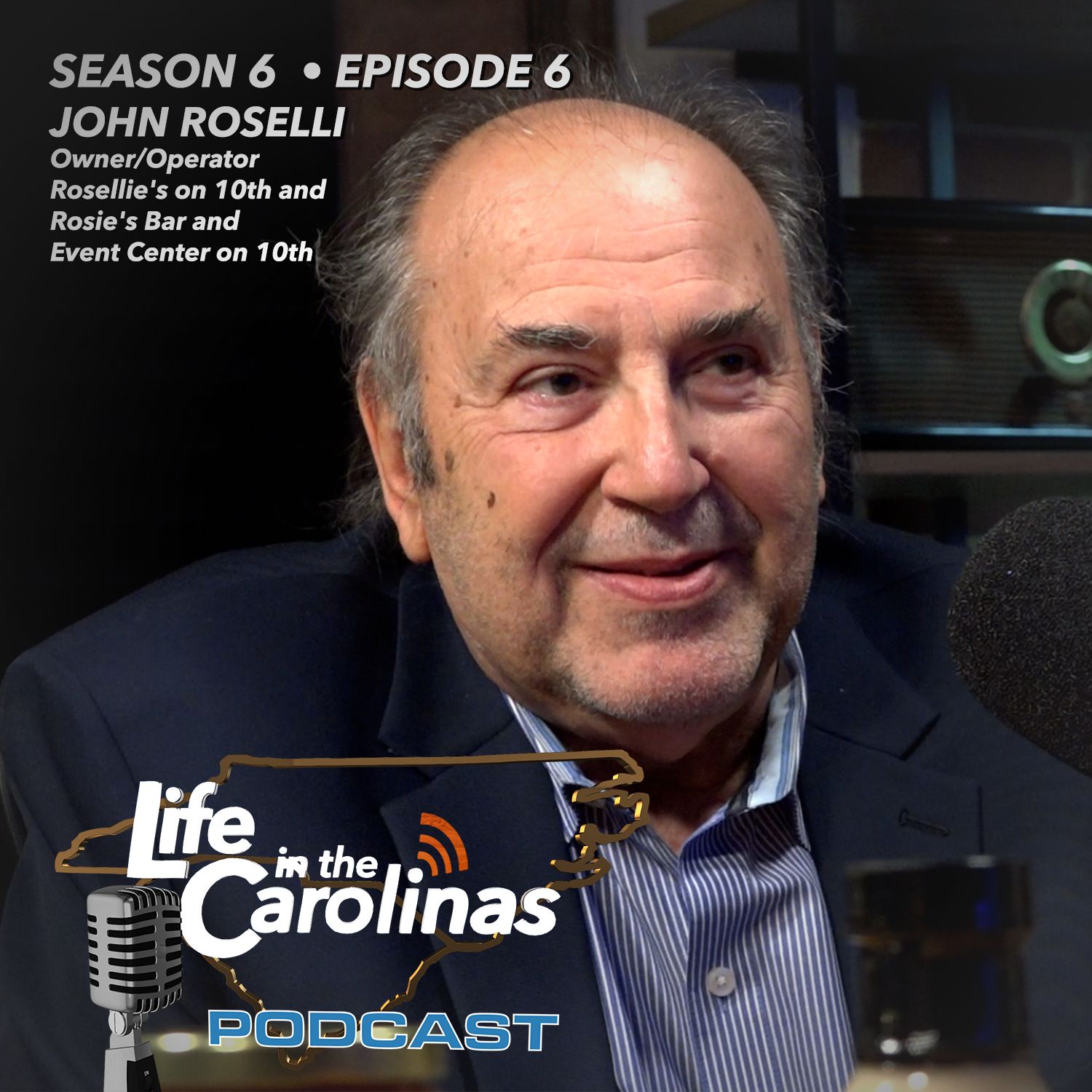

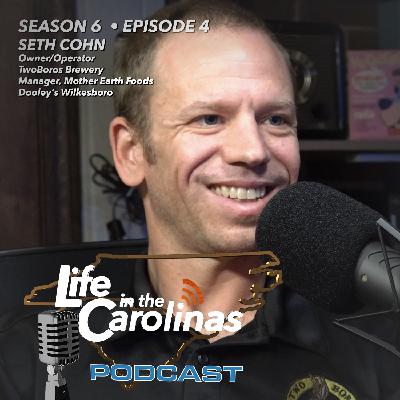


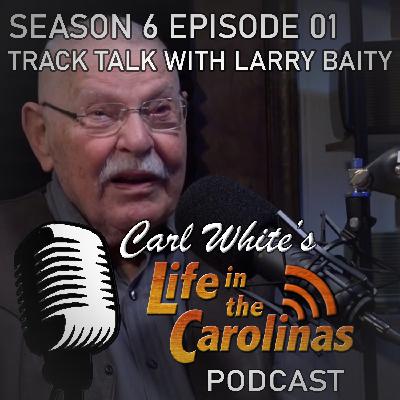



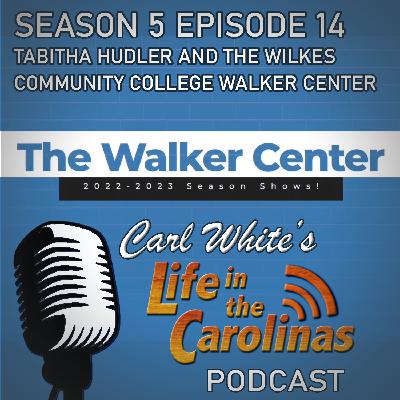
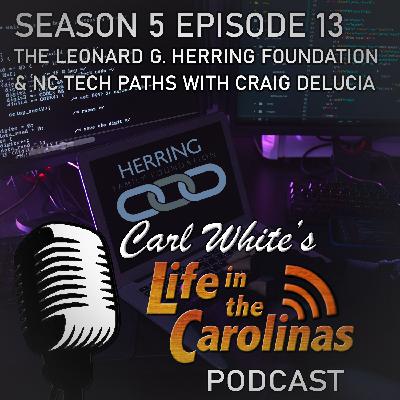
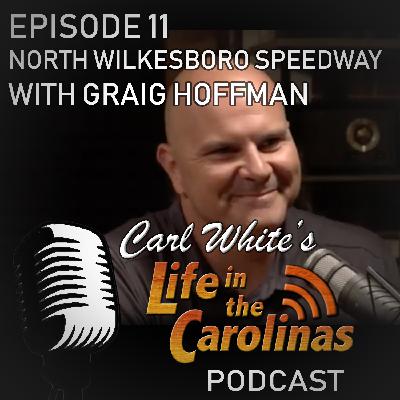
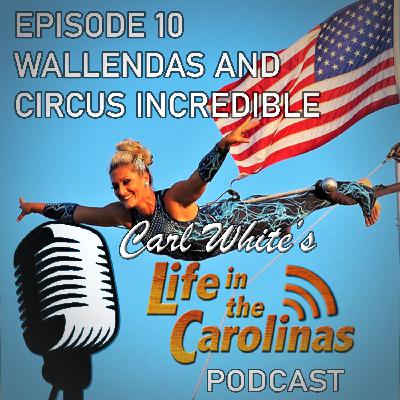

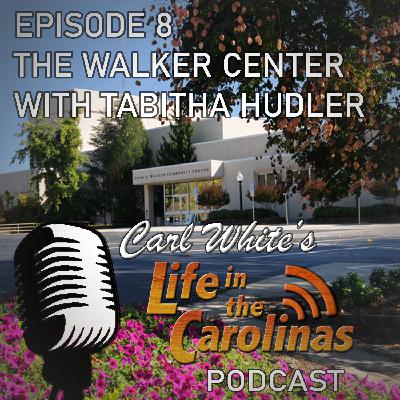
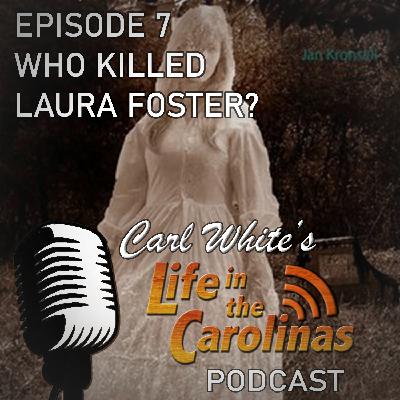
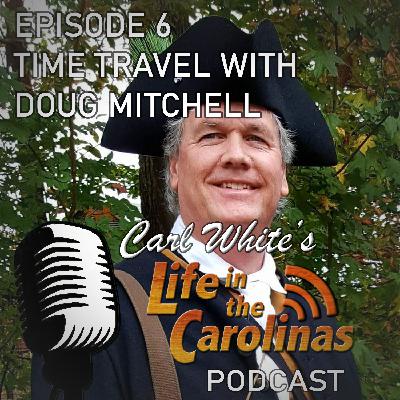

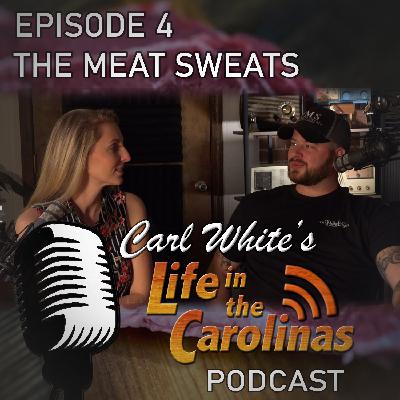
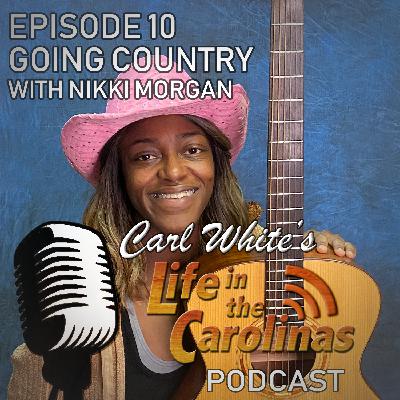



I've watched LIFE IN THE CAROLINAS on CBS Sunday mornings & enjoyed it tremendously. This is where I learned of the podcast so I had to subscribe. I'm not a Carolinian so I've larned about events. history, & culture. I recommend both the podcast & the television series on CBS. You won't be disappointed.